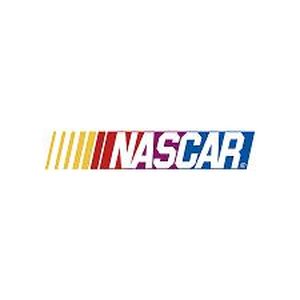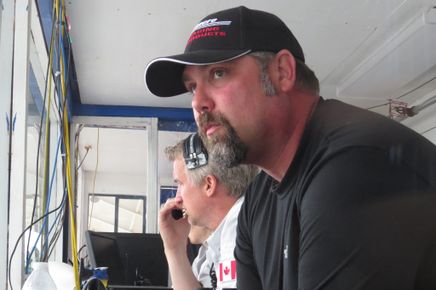The Price of Fame
The entertainment media would largely be plunged into bankruptcy if we didn’t have an avid interest in our icons, heroes and yes, even our villains. Read our guest columnist Cathy Elliott's take on this impacts NASCAR.
Cathy Elliott
Guest Column/Courtesy of NASCAR Media Relations
We’ve been hearing a lot of criticism over the past few weeks about what has been called the worldwide “deification” of pop music icon Michael Jackson. I’m not quite sure what all the fuss is about. We do this all the time, not only with musicians, but with artists, athletes, actors, authors and those mysteriously famous others who defy any categorization or rational thought. Paris Hilton comes to mind.
If every successful businessperson in this country was set up on a pedestal the same way our NASCAR heroes are, chiropractors would never have another care in the world. America would have a permanent crick in its neck. So many people have made so much money that admiring their accomplishments has almost become a full-time job.
I guess deep down we know – or at least we’re relatively sure we know – that NASCAR superstars put their flame-retardant racing suits on one leg at a time, just like the rest of us.
Admittedly, it is kind of cool to imagine them doing stuff like descending into the depths of stately Edwards Manor, where their “work clothes” wait in somber splendor under a spotlight, before roaring out of a cave in the jaw-dropping Aflac-mobile. Or watching a relatively nondescript middle-aged man duck into a phone booth only to emerge seconds later in full Kellogg’s splendor before taking flight, faster than a speeding bullet.
Granted, you might need a special sort of superpower to even find a phone booth in this day and age, but you get the drift.
The entertainment media would largely be plunged into bankruptcy if we didn’t have an avid interest in our icons, heroes and yes, even our villains. It sometimes seems that when someone earns a big pile of money, they garner respect at the same time and in the same proportion, and we, in turn, look up to them. We admire them. They seem to be set apart from us, to be different somehow.
But are they really? Does a man’s net worth necessarily equal his net measure of success in life, or define his value as a person? I can tell you from personal experience that, in NASCAR terms at least, the answer is an unqualified “no.”
One of the very best things about working in a public relations capacity in NASCAR is the opportunity to have kind of a “backstage pass” with the drivers. They often come to racetracks to participate in media events and such, and you spend time with them and get to know them and have conversations with them that most folks just never get the chance to have. Preconceptions fly out the window faster than kids fly out the door on the last day of school.
But like those students eager for the start of summer, lessons can find you and teach you something when you least expect it. You see things in a different light. You learn the difference between a person and a persona.
The first example of this came courtesy of Professor Carl Edwards. I was driving Edwards back to the driver motorcoach lot from an appearance on the SPEED stage one night after qualifying at Darlington, when he asked if we could make a detour and go up into the grandstands.
I wasn’t really sure what Edwards wanted to do up there. I probably thought at the time that he might be feeling a tad insecure and just needed a little love from the fans.
Wrong. He asked me to stop the golf cart in a largely deserted area of the frontstretch grandstand, no fans in sight. Then he got out and for a very long moment, just stared out at the track, which looked misty and mysterious under its brand new lighting system.
“Wow,” he said. “I’ve never seen it like this before. Wow.” For just a moment, a star was starstruck.
Lesson learned? We are never too impressive to be impressed.
A couple years later, I had the opportunity to judge a national anthem singing contest with Professor Kasey Kahne. Hopeful NASCAR Idols from all over the country had been narrowed down to three, and they participated in a sing-off in front of a semi-big crowd and an extremely big name.
Any of the three would have been worthy of the win, so there really was no wrong decision. But when the moment of truth arrived and the final decision had to be made, Kahne leaned over to me and whispered, “I can’t decide. I can’t choose. I don’t want to hurt anyone’s feelings.”
Lesson learned? A hero’s feelings are not more important than the feelings of his fans.
Professor Tony Stewart was addressing a motorsports marketing class at the University of South Carolina one year when the question came up, “When did you know you were famous?”
I’m paraphrasing here, but the answer went something along these lines. When Stewart was a kid growing up in Indiana, doing all the things normal kids do, it became his habit to visit the same Coke machine after school every day for a soda.
So after he was all grown up and a NASCAR Sprint Cup Series champion and generally acknowledged as one of the greatest race car drivers in history, he visited the old neighborhood one day and went around the corner for old times’ sake to get himself something cold to drink out of that same Coke machine.
But the Coke machine had changed … he was on the front of it. A life-sized, two-dimensional Tony Stewart stared back at his flesh and blood counterpart. Talk about coming face to face with your own reality. A man who deals with millionaires every day was stopped in his tracks by a one-dollar Coke machine.
Lesson learned? It is often a good thing to catch a glimpse of yourself from a different perspective.
The true price of fame may be a whole lot less than you imagined, but worth a whole lot more than you think.

